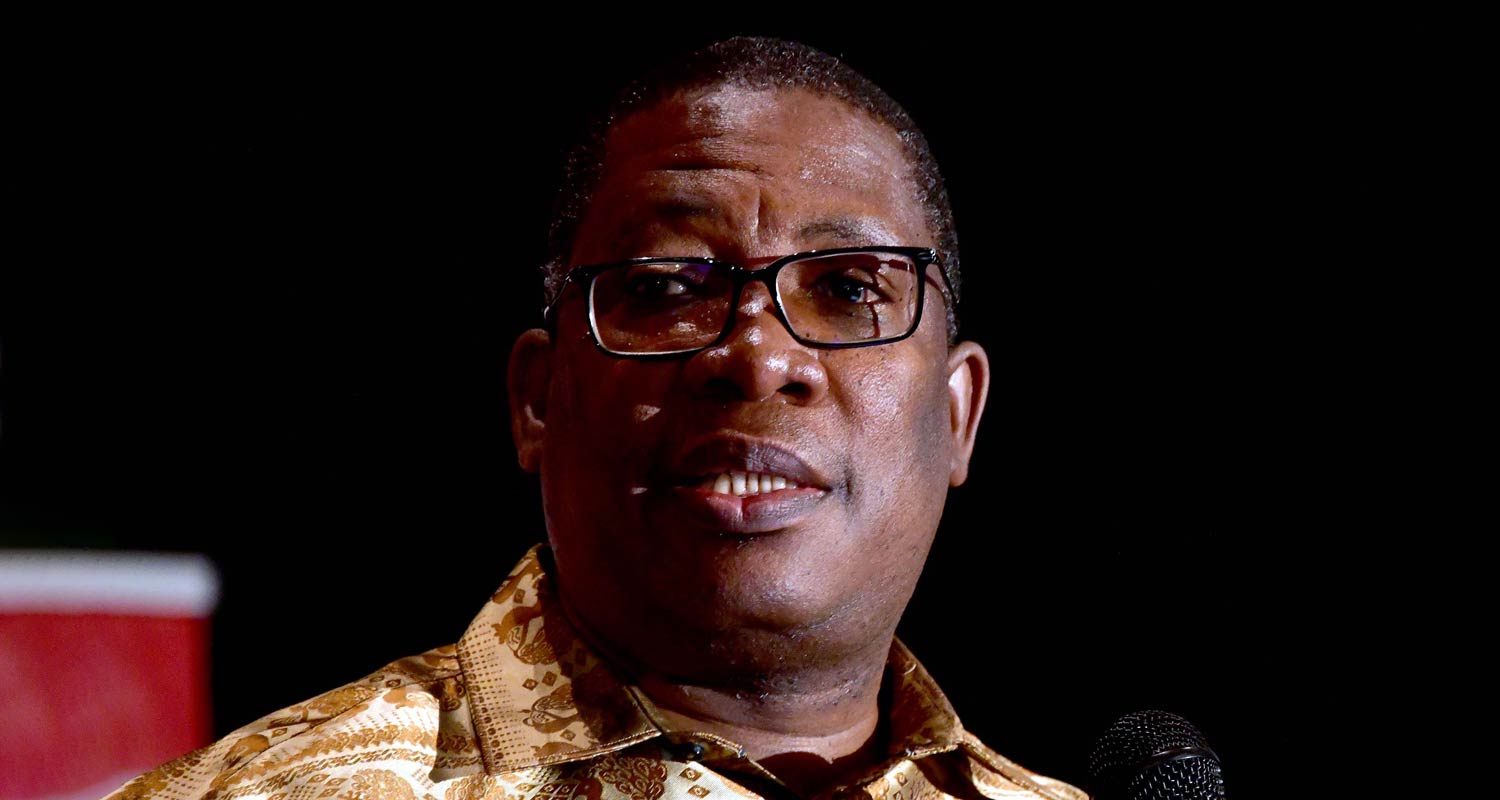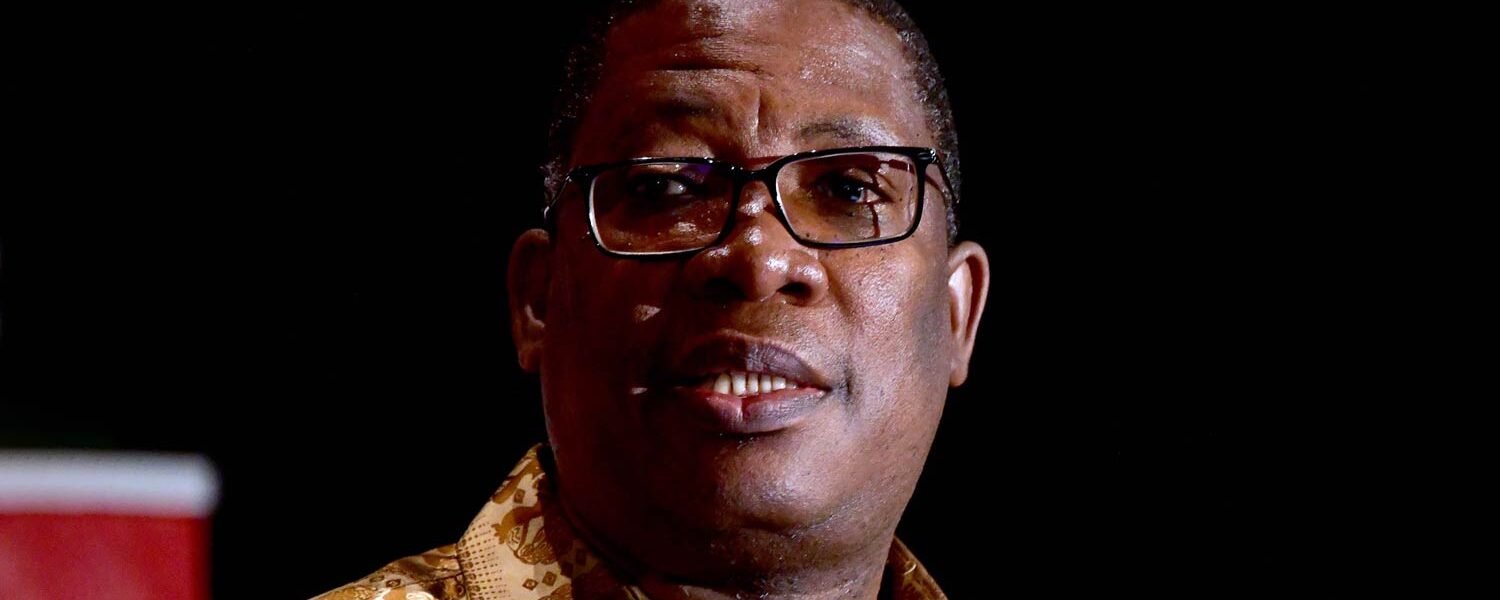
Sizwe Pamla, spokesman for Gauteng premier Panyaza Lesufi, has told TechCentral that the question of why the scrapping of e-tolls was not raised by finance minister Enoch Godongwana in his budget speech on Wednesday has nothing to do with the province.
“You must go to national treasury and ask them,” he said. “This is not a provincial issue.”
In his state of the province address on 19 February, Lesufi implied – although didn’t directly state – that Godongwana would deal with the thorny issue of e-tolls in the national budget speech. This did not happen.
In his address, Lesufi vowed that switch-off of the e-toll gantries will begin by no later than 31 March 2024.
“The intergovernmental task team has finished its work, meaning the role of Gauteng is over. It is now the responsibility of the national department of transport, that’s who you should be speaking to. The fact that national government didn’t talk about e-tolls has nothing to do with us,” Pamla told TechCentral.
Lesufi said in his address: “We had a meeting with affected parties, including the ministers of finance and transport, and reached an agreement that by 31 March the formal process to switch off and de-link will begin and e-tolls will be history in our province.”
His remarks were immediately met with scepticism, including from the Organisation Undoing Tax Abuse (Outa), which was originally founded to fight the e-tolls system.
‘End e-tolls’
Godongwana, however, made no reference to e-tolls or Lesufi’s promises in his budget speech, leaving some to wonder whether Lesufi was simply making empty promises ahead of the election, scheduled for 29 May. Opinion polls suggest the ANC will fail to secure a majority in the provincial poll.
Lesufi said: “Last year, we assured the people of Gauteng that e-tolls would be a thing of the past. I am happy to report that on 26 January 2024, a final meeting was held between the Gauteng provincial government and the ministers of finance and transport. We remain confident that we should be able to end e-tolls by March.”
The Gauteng government – including Lesufi – has been promising to do away with the much-loathed e-tolls for years, with little sign of concrete action.
Read: Lesufi promise to end to e-tolls met with scepticism
But, according to News24, Godongwana said after his budget speech that there was no deal to switch off the e-toll gantries at the end of March and that the province had not met the two main conditions for scrapping them.
These hinge on an agreement for the debt still owed to be split 70:30 between national government and the province; and for Gauteng to give assurances that it has funding to maintain the freeways.
 Outa executive director for accountability Stefanie Fick told TechCentral that one arm of government is fighting another, and it’s a “message we’ve heard before”.
Outa executive director for accountability Stefanie Fick told TechCentral that one arm of government is fighting another, and it’s a “message we’ve heard before”.
“In the first place, Lesufi is not in a position to end e-tolls – he doesn’t have the power, so Sanral will just keep on until it’s paid. There must be an official declaration, not just different messages coming through.
“The interesting thing is that the ANC has been very vocal against e-tolls, but this is an election year. And then there is the bone of contention over money. Why should Gauteng pay 30% of the cost for 1% of Sanral’s roads? National roads are [Sanral’s] baby, and they administer 22 000km of roads in South Africa, but this is about 200km of roads in Gauteng. In just five years R8.9-billion in e-toll payments has left South Africa and gone overseas,” she said.
Read: E-tolls: ‘Not simply a matter of scrapping and not scrapping’
“As a road user, you have to question why you are paying e-tolls. In March 2019, the Sanral board said it wouldn’t stop issuing summonses or even sending threatening letters warning of prosecution, but nothing happens. Sanral does nothing about debt collection.” — © 2024 NewsCentral Media



